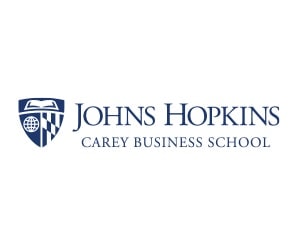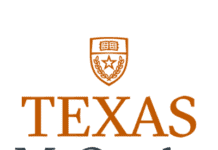 The Johns Hopkins Master in Finance program is one of the more popular part time options for students looking to do their MSF. With locations in both DC and Baltimore, Johns Hopkins is a great option for anyone looking to work in tri-state area. I was lucky enough to meet an individual who recently graduated from the program and was happy to provide a review. Hope this helps any of you out there considering the program.
The Johns Hopkins Master in Finance program is one of the more popular part time options for students looking to do their MSF. With locations in both DC and Baltimore, Johns Hopkins is a great option for anyone looking to work in tri-state area. I was lucky enough to meet an individual who recently graduated from the program and was happy to provide a review. Hope this helps any of you out there considering the program.
——————
Why an MSF in general? Why a JHU MSF in particular?
Two main reasons for the MSF in general
1) I didn’t excel academically as an undergrad. I was also a political science major w/ economics minor. In general, I wanted to improve my academic track record and get an education more focused on my career goals, which bring me to….
2) I was working at a job a loved, but the firm was small, so upward potential was limited. Nonetheless, an outstanding chance to learn about everything from back office operations, analysis, and trading/portfolio management (a path I followed in my 4-5 years there). Again, coming from a small firm, my goal was getting a degree that could give me a little boost and help me move to another firm. Also, because I was in trading and want to continue in trading (and I wasn’t in managerial positions yet), an MBA seemed like a lot of classes that didn’t focus on my core interest, finance and markets
What were the reasons for the Johns Hopkins Masters in Finance?
I wanted a program that was flexible and that I could get into. With a less than stellar undergrad GPA, even with a good GMAT (probably could have done better on a second attempt), GW and Georgetown were out. At the time, JHU was in the mist of coming online as a higher profile program, but it was already fairly well regarded in the area (employers like booz allen and other large firms in the DC area were the majority of my classmates). Moreover, it was a good name and the school as a whole has a great reputation.
I also wanted to stay local so I could keep my job and get my degree at night, so I was geographically limited to schools in the DC area.
Pros and Cons (if any) of the Johns Hopkins Masters in Finance?
Pros:
Great professors. Most of them worked in government or NGOs, but had private sector experience. They had daily insights on markets that were not purely academic, but reflected their daily real world experiences. A few examples:
My professor for financial statement analysis and a few other classes was the lead analyst at FDIC. So during the financial crisis, the guy teaching my class was also the guy “red flagging” banks around the country. He brought in examples of financial statements and asked us to determine what happened with the bank and sometime it would be healthy, but others it was a bank that got shut down 2 days before.
My capstone professor was a top analyst at Freddie Mac, not only did he line up great speakers: Edward Golding, chief economist at Freddie Mac; D. Wayne Silby, Founder of Calvert Investments and a bunch of other high profile economists etc. What made this particularly interesting was that this was during the housing crisis and I’m listening to the top economists from the bigger mortgage pass through firms in the world.
My Risk Management professor was the Head of Risk for the World Bank. Pretty interesting insight into the markets from a person managing that kind of global risk on a daily basis.
***The point of my tangent is that people don’t tend to associate DC with big finance, but the reality is that nothing is bigger than the government. While the hours are better and the pay is less, the professors I had could very readily have jumped from the public sector to the private sector and worked at any bank on Wall Street, likely at a very high level, some of them already had, but instead choose public service for whatever reason. This is particular true during the worst parts of the crisis.
Beyond that, I had a great experience, because classes were sometimes mixed with MBA and MSF student together, I was often working with significantly more experience professionals, which was great. The student body is also very culturally diverse, which frankly has pros and cons, but the cons are actually pros in the long-term as I believe it’s important to learn how to work and communicate across cultures (better to learn this in the class room than the board room in my opinion)
Cons:
Accreditation has taken a bit longer than expected, not a big deal locally, but outside of this area that could pose a problem for job searchers (like me).
Still developing career services and growing the network (I think once they fully tap into the general JHU population this effort will quicken. They have also made efforts to hire Career Services people from schools like Booth etc, which should help over time).
While I was there, they were re-designing the whole MBA and MSF programs, which led to my first 5-6 classes being 3 credits (18 weeks) and then my last 12+ classes being 2 credits (9 weeks). This was a rocky transition, but administration and professors handled it fairly well and I think it’s for the best in the long run.
The JHU- Carey alumni network is very small outside this region, which makes things difficult.
3) Who would you recommend a Masters in Finance to?
People like me and you. Younger people, with limited to no management experience, who are looking to get an edge, meet new people and develop their abilities. It’s great for career switchers or people looking to change firms, like myself.
4) Anything else you want to talk about. OCR, Alumni, class experience, regrets, how it helped, etc.
My only regret is not getting on top of networking sooner in my grad experience (as oppose to after I graduated, haha). The alumni I’ve reached out to have been very helpful and accommodating, I believe the school is heading in right direction and that overall JHU is a great university. The new b-school in Baltimore is beautiful and they are doing some great work up there with getting students internships etc at the asset managers in Baltimore (Legg Mason, T. Rowe Price etc.).
Although I quit my trading job to complete my last year of grad school and take a breather, my graduate degree (or the progress I had made at that point in time) helped me secure an unsolicited job as a financial analyst at another firm. It’s not my ideal job, but I wouldn’t have gotten it without my MSF and even if I did, my skills set would have been lacking, so there is definitely a benefit. I feel that it’s helped get my resume some more attention as well, particularly in the DC area.
My biggest pieces of advice for someone considering MSF would be:
Go to school where you want to work!!! Also, want to work where there are jobs you want to do!!! I view this as the key weakness of my MSF strategy, although if I had the chance to do things again, I would still have kept my job and gone to JHU at night, because that’s what worked for me.
Go to a school that focuses on what you want to do!!! I want to get into physical energy trading (although I wasn’t as sure of this when I started looking into MSF programs), I would have benefitted from a school with energy/commodity focused courses and professors with experience in those areas.
——————
Here is a link to the Johns Hopkins Master in Finance program




